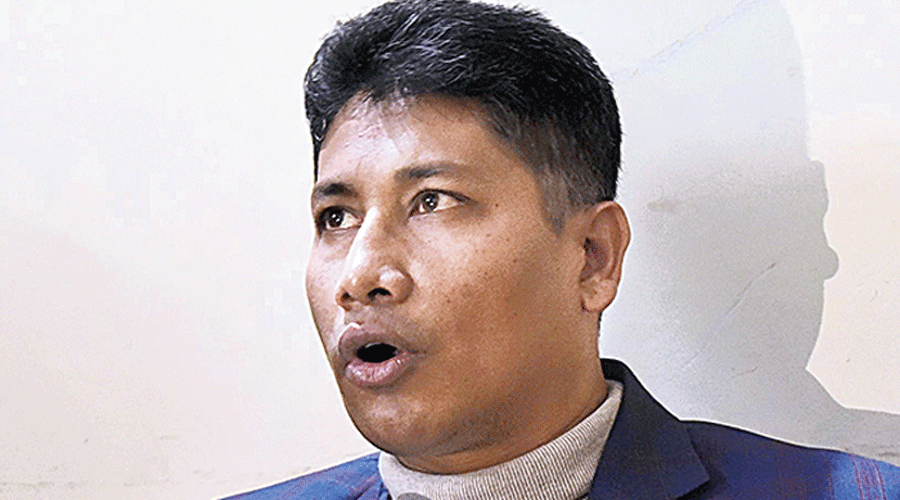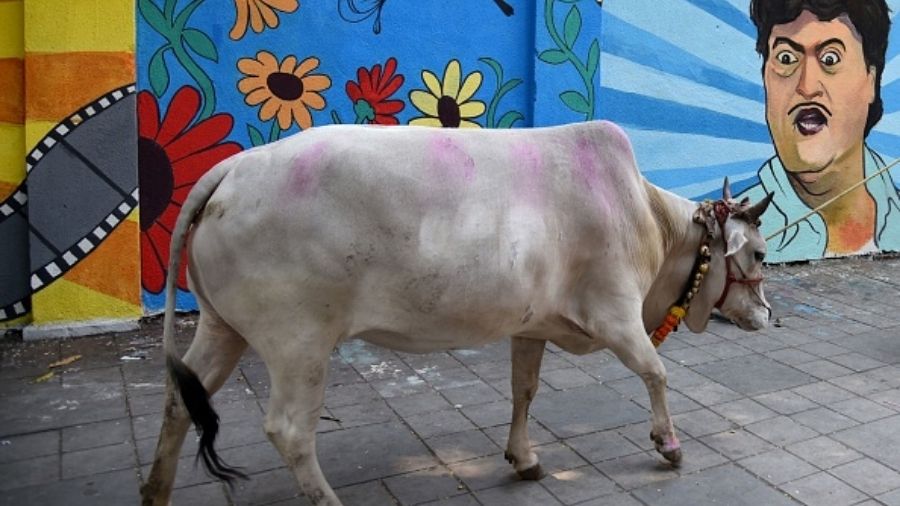The re-elected BJP government in Assam has signalled its intention for a complete ban on transport of cattle outside the state, moving swiftly to enforce a pet project and giving Bengal a clue to what it might have escaped by turning its back on the saffron juggernaut.
“I am happy to inform you that my government plans to introduce the Cow Protection Bill in the next Assembly session. The proposed bill envisages the imposition of a complete ban on the transport of cattle outside the state. We will adopt a zero tolerance policy and enforce stringent punishment for the offenders,” governor Jagdish Mukhi said in his address to the first session of the 15th Legislative Assembly on Saturday afternoon.
The transport of cattle outside Assam or within the state is not banned now, provided a set of prescribed documents is in order.
Neither did the BJP manifesto, known as the vision document for the Assembly election, mention any such plan. Cattle restrictions are a sensitive issue in the Northeast where consumption of beef is not illegal.
In northern India, during the height of a wave of lynchings by cow vigilantes, alleged illegal transport of cattle was often cited as the flashpoint.
In Bengal, both intra-state and interstate transport is legal on the production of some documents. In the BJP’s election manifesto for Bengal, the party had vowed to crack down on “all kinds of cattle smuggling activities”, which was seen as an oblique reference to the illegal trade with buyers in Bangladesh.
But the Assam overdrive makes it clear how blurred the domestic and cross-border distinctions can be.
Assam cabinet minister Pijush Hazarika told The Telegraph that the idea behind banning the transport was to check cattle smuggling to Bangladesh.
“It runs into crores of rupees. Our government especially wants to check cattle smuggling through this proposed bill,” he said.
However, sources familiar with the cattle trade in Assam said the transportation mostly took place within the Northeast and very rarely outside the region. “Cattle mostly come from outside — for agriculture, dairy farming and for consumption,” a source said.
An official pointed out that cattle meant for smuggling came from elsewhere in India, not from the Northeast.
“Cattle are mostly smuggled from Assam to Bangladesh from Karimganj and Dhubri districts bordering Bangladesh. Assam serves as transit. These cattle mostly enter Assam illegally from Bihar, Uttar Pradesh, Rajasthan and Haryana, and are headed to Bangladesh,” the official said.
In March, Union minister of state for home Nityanand Rai had said that over 4.76 lakh cattle meant for smuggling to Bangladesh were seized in the past five years by the BSF.
An Assam veterinary department official said cattle can be transported outside the state or brought into the state by furnishing a health certificate issued by a veterinary doctor plus a transit certificate issued by the assistant director or an officer above him.
Cow slaughter is not banned in Assam. “It is regulated under the Assam Cattle Preservation Act, 1950. To slaughter, a cattle head needs to be over 14 years of age or has become unproductive. You will, however, need a certificate from a veterinary officer stating that the cattle is fit for slaughter,” an official said.











